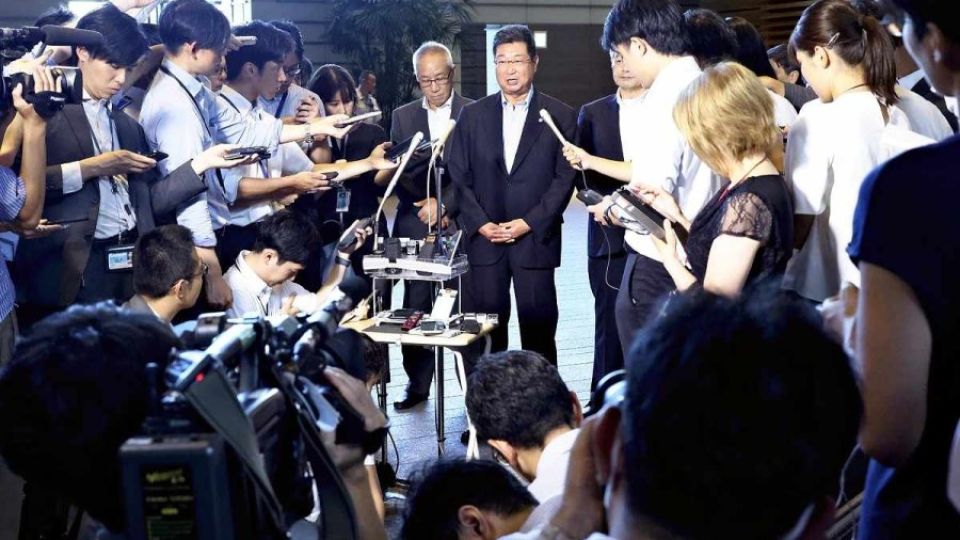August 23, 2023
TOKYO – The schedule for releasing treated water from the Fukushima No. 1 nuclear power plant into the ocean has been decided, causing consternation among workers in the fishing industry.
Flatfish caught off Fukushima and Ibaraki prefectures used to have a good reputation, but many workers are worried that commercial fishing will be adversely affected, as it was in the aftermath of the plant’s triple meltdown in the wake of the 2011 Great East Japan Earthquake.
“Won’t this harm the reputation of these local products?” Akio Suzuki, the 74-year-old head of a fisheries cooperative in Hitachi, Ibaraki Prefecture, asked rhetorically on Tuesday.
Suzuki entered the fishing industry after finishing junior high school, taking over his family business. When the earthquake struck on March 11, 2011, his fishing boat was badly damaged as the tsunami drove it onto concrete coastal tetrapods.
Quite a few of his fellow fishers quit the industry after going through similar plights. Today, the number of fisheries cooperative members has been reduced by nearly a half to about 30.
Still, the cooperative’s turnover and catch volume have been good the past several years as the landed catches now include Ise-ebi spiny lobsters in addition to whitebait, the main fish caught in the area.
“The sea here has been a great fishing ground since long ago,” Suzuki said. “I don’t consent to the discharge of treated water, but I’d like to make it possible for fishers from the next generation to continue fishing.”
A 36-year-old fixed-net fisher at Hitachi’s Ose Port said he thought the local fisheries were already being negatively affected again.
In July, a broker told him that if treated water is discharged, marine products from the area might not be bought.
After the 2011 earthquake, he resumed fishing but had to return to the sea the flatfish and sea bass he had caught because they did not sell after the nuclear disaster at the Fukushima power plant.
“I wonder how widely the bad reputation will expand this time,” he said.

